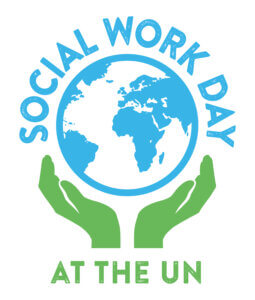
Dear Colleagues;
Since the pandemic, securing space at the UN has become increasingly challenging. A country mission and, if possible, a UN organization are needed to co-sponsor an event. While we begin reaching out months in advance, the process does not always work in a timely way, and we find ourselves with far less time than we would like to plan, fundraise, and invite social workers to Social Work Day at the UN. This was one of the years when the process did not work in our favor. We came to the difficult decision that we would not hold Social Work Day at the UN in March 2024. In addition, religious holidays, other UN events, and the Joint World Social Work conference in Panama this April restricted us to two possible dates at the end of March – both of which had very limited availability to accommodate our event.
Instead, we will be planning:
- A student networking event online around World Social Work Day 2024 organized by IASSW and IFSW student interns.
- A Human Rights Day in New York for social work students to showcase their interpretations of human rights issues and advocacy to celebrate the Universal Declaration of Human Rights’ birthday. Stay tuned for details.
We’ve already initiated planning for Social Work Day at the UN in March 2025!
We will miss seeing you all this March, but we look forward to a grand celebration of social work at the United Nations next year!
Sincerely,
The Planning Committee for Social Work Day at the UN
Robin Mama, IFSW Representative
Shirley Gatenio Gabel, IASSW Representative
Rebecca Davis, IASSW Representative
Sergei Zelenev, ICSW Representative
